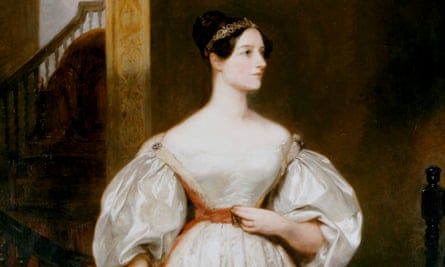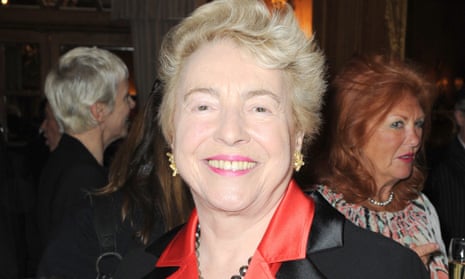Tuesday is Ada Lovelace Day. Who’s Ada Lovelace, apart from someone with a truly bitchin’ steampunk name? Well, she deserves all the brass-and-clockwork associations her name brings up because she was probably the world’s first computer programmer. She was born in 1815, and studied maths and logic out of a deep personal interest. She befriended and worked with mathematician Charles Babbage, and her ideas for how Babbage’s Analytical Engine might work prefigure modern computer science. Ada Lovelace Day was founded to celebrate the achievements of women in science, technology, engineering and maths (Stem).
And because Lovelace’s achievements were in programming, I want to celebrate two other women who lit up the world of coding. Did you know that two of the first software houses worthy of the name in the UK were founded by women, in the late 1950s and early 1960s? And that they both made – and this isn’t emphasised enough in lists of women’s achievements, in my view – enormous piles of cash doing it? And that this wasn’t so unusual in the 1950s and 60s, because there was a brief period where coding was seen as “women’s work”, as it involves a lot of focus on detail and typing (coding is overwhelmingly male today)? If you didn’t know these things – and I didn’t until I started digging – then it’s about time we celebrated the work of Dina St Johnston and Dame Stephanie “Steve” Shirley.
The 1960s weren’t the sexiest years in UK computing history. Unlike the Enigma machines of the 1940s, or the 1980s personal computing revolution, the 1960s brought computers to bear on far more mundane matters: train signalling, payroll automation, banking systems, air-traffic control. The kind of computing we never think about, but that underlies almost every aspect of our lives. The kind in which – and it really can’t be emphasised frequently enough – there was a lot of money to be made.
Before the late 1950s, there were no “software houses”. That is, there was no one actually making all the programs you might run on your home computer today. If you bought a computer – and don’t think of a sleek MacBook Air, imagine one of those machines the size of a room that ran on reel-to-reel spooling tape, instead – it was supplied as “bare metal”, and you’d have to write all the programs yourself. It was thought no one but a science department or a technical firm employing their own programs would want one.

Dina St Johnston (nee Vaughan) had always had an independent streak, her friend, Colin Porter, chief executive and secretary of the Institute of Railway Signal Engineers, told me. She left school at 17 to join pioneering computer firm Elliot Brothers, where she learned programming – and thought she had spotted a gap in the market. No programmers were selling software directly to the industry or, as she put it, as quoted in the Computer Journal in 2008: “There was a shortage of processor-oriented people who were happy to go round a steel works in a hard hat.” Dina St Johnston, however, loved working with machinery, and rejoiced in putting on the hard hat; later in life she collected fast cars and drove them at enormous speed around the private roads on her estate. She founded Vaughan Programming Services in 1959, the first software house in the UK. They created software for the BBC, Unilever, BAA, British Rail and GEC. She produced pioneering real-time passenger information systems – the forerunner of those clickety-click timetable boards in stations up and down the country – and flight simulators for the RAF. When she died in 2007, one obituary said that she’d “left a lasting contribution to both the art and science of programming” – and the company she founded still exists, now as a part of GE.
Stephanie “Steve” Shirley arrived in Britain as a Kindertransport child in 1939. “I think my ‘guilt’ about surviving the Holocaust gave me a strong urge to succeed,” she has said, “to prove that my life had been worth saving.” She took a maths degree at night school and founded her software house, Freelance Programmers, from her dining room table in 1962. She wanted to be able to work while raising her family, and was determined to help other women do the same. Shirley only employed female programmers until 1975, when the Equal Opportunities Act meant she had to open up applications to men. Her company, renamed Xansa, was listed on the FTSE-250 and sold software in areas including banking, transport and telecoms. Since retiring, Shirley has become a philanthropist; her late son Giles was autistic, and she takes a particular interest in autism charities. I met Steve Shirley once, and told her how much I admired her: for the company she created from nothing, and for her philanthropy today. “Well,” she said to me, “I had a lot of fun making the money, and now I’m having a lot of fun giving it away.”
I’ve gone on a lot about the money in this piece. The thing is, there aren’t enough messages to young women that technology is a fascinating area to work in, a fast-moving field, one that rewards hard work, an area where you really can change the world. And there also aren’t enough people saying to young women: a million dollars isn’t cool, you know what’s cool? Selling the multimillion-dollar programming company you founded and then spending the cash on whatever you like, from fast cars to charitable giving. And these two amazing women were two of the first people in the UK to do just that. There is not a reason on Earth it couldn’t be you, or your daughter. Happy Ada Lovelace Day.

Comments (…)
Sign in or create your Guardian account to join the discussion